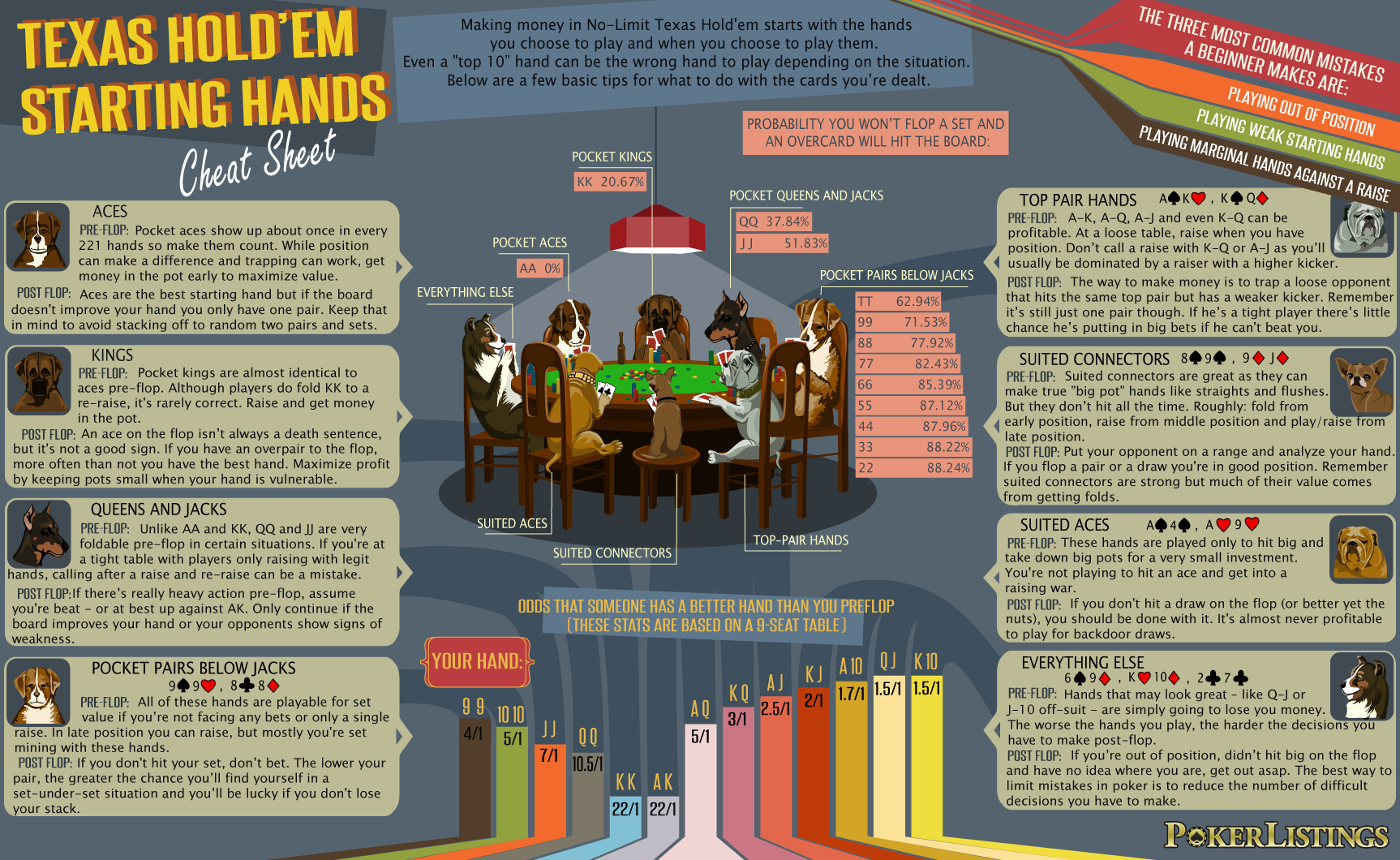고정 헤더 영역
상세 컨텐츠
본문

This is the most basic foundation of any winning Texas Holdem strategy. Don't get sucked into playing bad hands like so many amateurs do! Playing in Position is Winning Poker My next Texas Holdem tip is to make sure that you are playing the majority of your hands from the preflop charts above when you are in position. 4 THE INTELLIGENT GUIDE TO TEXAS HOLD'EM POKER formation presented is relevant to the other flop games (and poker in general), the correct strategy and tactics for a game such as Omaha are different from Texas Hold'em, even though on the surface the games look remarkably similar. Opportunities to play Texas Hold'em are more widespread than.
Good Texas Hold'em Strategy


Although it's possible to talk about Texas Hold'em strategy indefinitely, due to the game's subtle complexities, we've compiled three of the most salient pieces of poker advice every aspiring pro should know.
Pulling off fancy bluffs and check-raising the river with a small value bet may be enticing propositions. However, if you haven't mastered the basics, then you'll never have the ability to play like Phil Ivey and run these sorts of complex plays.
With this in mind, here are some good strategies online players with a burgeoning bankroll should commit to memory.
Cut Down the Amount of Hands You Play
One of the biggest mistakes novice players make when they first start playing Texas Hold'em is to get involved in too many hands.
Although the prospect of making a strong hand or bluffing our opponent is appealing, it's can actually be a major drain on your bankroll if you get involved in a lot of pots.
One important fact to remember is that if you play a lot of hands you will make a pair less than two-thirds of the time and this often means you'll have to fold a lot post-flop.
Secondly, if you do manage to make a hand it will be usually be weaker than average, which means you'll lose pots (and therefore money) at showdown more often.
Be More Aggressive
Coupled with a habit of playing more hands than is profitable, newbies will often adopt a passive strategy when they enter a pot.

Instead of raising or re-raising they will usually limp or call and allow another player to take control of the hand. This is potentially fatal because it means the passive player is more likely to be bullied into submission and, therefore, lose the pot.
There's an old adage in poker that you should try to remember if you want to avoid being passive and make more money: 'If a hand is not worth raising, then it's not worth playing.'

Be More Active
Although standard online Texas Hold'em strategy advocates that you take regular breaks, the reality is that most professional grinders never stray too far from their computers.
It may not be the right thing to do, but many online poker pros will put in 18-hour sessions without a second thought for their health, or, indeed, the health of their bankroll.
In the world of Texas Hold'em online, volume is king and if you aren't prepared to sit for hours on end at a computer then being a professional isn't for you.
Always Try and Play in Position
Position is king at the poker table and before you enter any pot you should consider where you are in relation to the button, the blinds and to any active players. Essentially this means you should play more hands the closer you are to the button because you'll have the benefit of extra information. Sometimes playing out of position is unavoidable, but if you want to have the greatest advantage over your opponents it's important to always play in position.

Texas Holdem Tournament Strategy Guide
Get Ready With Your HUD
Ultimate Texas Hold Em Strategy
Hand reading is a basic tenet of good poker, but when you're an online pro you can often get away with substandard powers of deduction by using your HUD. A Heads Up Display unit can uncover a multitude of tendencies on your opponent and help your decision making process immensely.





